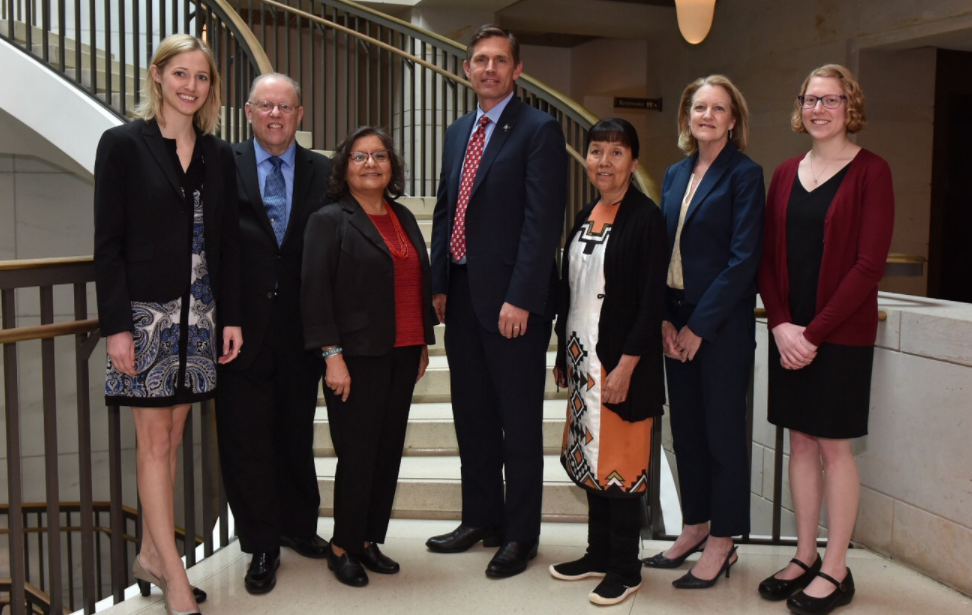Tribal Connect
Dear Friend,
When 80 percent of New Mexicans who live in rural tribal lands still lack access to high-speed internet, it's clear that we need to invest more in rural broadband infrastructure. Last week, during National Library Week, I hosted a Tribal Broadband Panel at the Capitol with the American Library Association to address the urgent need to improve internet access in Indian Country.
The discussion featured tribal librarians and rural telecom experts and focused on how broadband connectivity and telecommunications infrastructure in tribal and rural regions advances education, provides economic opportunity and can close the digital divide. I hope you can take a moment to watch and share the video of my remarks.
PHOTO: U.S. Senator Martin Heinrich convenes a panel at the U.S. Capitol on the Tribal Connect Act and the need to improve high-speed internet access in Indian Country, April 12, 2018.
I was proud the panel included voices from New Mexico, including Cynthia Aguilar, a librarian from Santo Domingo Pueblo. Santo Domingo is part of an unprecedented tribal consortium-the Middle Rio Grande Pueblo Tribal Consortium, a partnership of four Pueblos in New Mexico-that teamed up to secure the largest ever federal investment in broadband deployment in Indian Country. The Pueblos secured nearly $4 million of federal funding to build a new fiber-optic network at their libraries through the Federal Communication Commissions' (FCC) Schools and Libraries Program-also known as the E-Rate Program.
I've teamed up with Republican Senator Dean Heller of Nevada to introduce the bipartisan Tribal Connect Act to make sure funding and resources from the $4 billion E-Rate program benefit our tribal communities. The Tribal Connect Act will enable more tribal libraries like Santo Domingo's to apply for E-Rate support to spur development of new networks. It will also establish a new pilot program at the FCC that will allow tribes who don't have tribal libraries to provide broadband connectivity at another facility like a chapter house or community center.
We must provide the necessary resources to close the digital divide in Indian Country so all of our children, no matter where they live or go to school, can learn the skills they need to succeed in the 21st century. I will keep working with all of my colleagues to stress the urgency of this issue and build momentum toward passing the Tribal Connect Act into law.
Sincerely,
MARTIN HEINRICH
United States Senator
